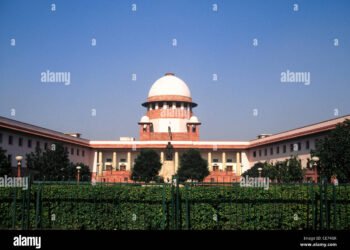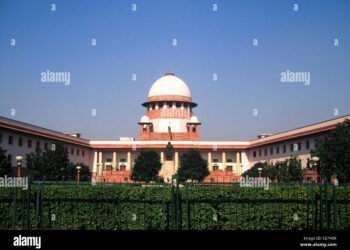The Centre on Friday, defending the amendments made to the waqf law, opposed any temporary suspension of provisions while the Supreme Court hears challenges based on religious and property issues.
‘Waqf by user’ acknowledged only by registration: Centre
In its response to petitions contesting the Waqf (Amendment) Act, the Centre asserted that ‘waqf by user’ has been acknowledged solely through registration over the past 100 years – starting with the initial waqf act in 1923 – rather than through verbal agreement. “Hence, the amendment aligns with consistent practice,” the Centre informed the bench.
‘Waqf by user’ denotes land or property deemed waqf because it has been utilized for religious purposes over an extended period. Even in the absence of formal documentation or a written deed, such property may be designated as ‘waqf by user’, based on its utilization over time.
The Centre additionally contended that even if all waqfs, such as ‘waqf by user’, were required to be registered under the original 1923 act, many private and government lands were asserted under ‘waqf by user’, resulting in the loss of valuable property rights for individual citizens and illegitimate claims over public assets.
SC had earlier raised concerns over various aspects of ‘Waqf by user’
Earlier this month, the Supreme Court raised issues regarding the elimination of ‘waqf by user’, the presence of non-Muslims on waqf boards, and the authority of the Collector in deciding the status of waqf on contested government land.
“We do not stay a legislation normally at this stage of the challenge unless in exceptional circumstances. This appears to be an exception. Our concern is that if waqf-by-user is de-notified, there could be huge consequences,” noted Chief Justice of India Sanjiv Khanna while highlighting specific sections of the act.
On April 17, Solicitor General Tushar Mehta guaranteed the court that they would not designate non-Muslim individuals to any Central or State waqf boards according to the recent amendment. He additionally argued that the waqf by user would remain notified until the upcoming hearing date.
Inclusion of 2 Non-Muslims in Waqf Council inclusive, says Centre
Acknowledging Mehta’s guarantees, the Supreme Court chose not to issue a temporary stay and instructed the Centre, states, and waqf boards to submit their replies within a week.
Regarding the addition of two non-Muslims to the 22-member Waqf Council, the Centre on Friday described the action as a reflection of inclusiveness rather than an interference in the management of waqf.














